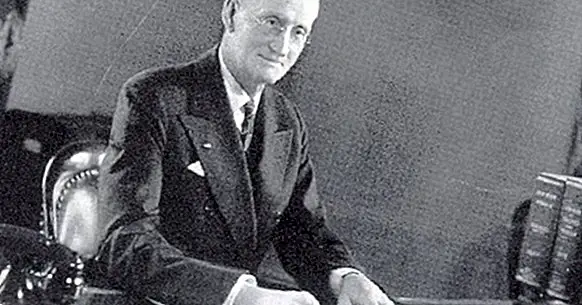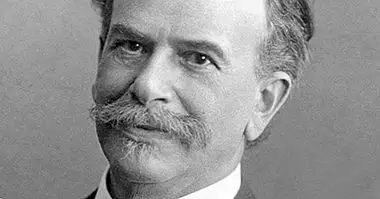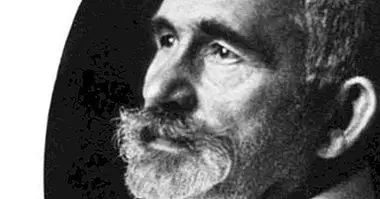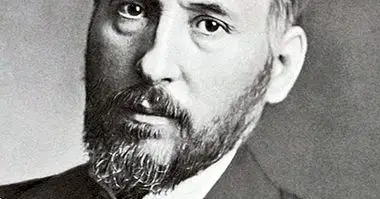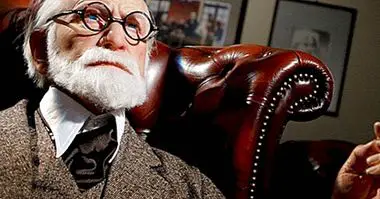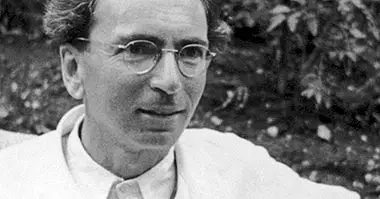Walter Dill Scott: biography of this psychologist of the business world
Walter Dill Scott was an American psychologist who made many contributions to applied psychology, especially in the industrial area. As his biography shows us, Dill Scott laid many of the psychological foundations of advertising and the current principles of human resources.
Below you will find the biography of Walter Dill Scott, one of the first to recognize and apply principles of psychology in the business area. The latter in relation to advertising, because it considered that the latter is the "nervous system" of the business world.
- Related article: "History of Psychology: authors and main theories"
Who was Walter Dill Scott? Biography of a pioneer in applied psychology
Walter Dill Scott (1869-1995) was born in Cooksville, Illinois. His training at Northwestern University was in the artistic and educational area. Later he moved to Germany to study psychology under the tutelage of Wilhelm Wundt at the University of Leipzig, where He received a doctorate degree in philosophy in psychology and education in the year of 1900.
With this degree he returned to the faculty of psychology at Northwestern University as professor, laboratory director and later head of the department. He was also a professor of advertising and applied psychology at the School of Commerce.
Along with several of his colleagues, Walter Dill Scott believed that the advertising field had a great future. Thus, in 1903, he published together with other authors the first book that had the theme of advertising in relation to psychology : The theory and Practice of Advertising (Theory and practice of advertising).
From psychology to advertising
Walter Dill Scott was not only interested in psychology, but in world affairs and had a broad understanding of history. This, together with his general orientation in the culture, allowed him to see the possibilities of publicity as a popular educational force, which little by little led him to define some standards of truthfulness and effectiveness.
Very soon he realized that advertising could exercise changes in the mind, with which, the laws that govern the mind should be taken into account to determine if an ad will be effective or not. In other words, he suggested that advertising has psychological components that can be exploited.
In addition, while Dill Scott analyzed advertisements, he realized that many of them were badly made. From there he began to wonder how he could improve them, and one of the conclusions he reached was that the first thing was to select duly qualified people to prepare the announcements.
That is to say that, beyond the essential qualities of effective advertising, Dill Scott began to consider the qualities necessary for a seller to succeed . Thus, it quickly became the number one authority in the field of advertising psychology and in the selection and management of human resources.
In turn, advertising and personnel management were positioned as two key elements for the business field, which opened a very important door for applied psychology.
- Related article: "7 keys of Psychology applied to Marketing and Advertising"
Contributions for the management and selection of personnel
Between the years of 1908 and 1915 Walter Dill Scott led a sellers selection study for the American Tobacco Company (American Tobacco Company). His intention was to elaborate and test criteria for a systematic selection of sellers.
For this, he started by observe closely how the interviewees who were in charge of hiring the staff operated . Very soon he realized that they used a simple method that he described as "give or receive", with which, they do not give him the information he needed.
Thus, Scott began to examine and analyze directly the qualities that had the most successful sellers of the company. Afterwards, he discussed these qualities with his research team and with the company's interviewers. This allowed him to train the interviewers on how to determine if the applicants met the desired qualities.
Finally, Scott and his team oversaw the application of their approach until it was fully demonstrated that the interviewers were effectively selecting the vendors. The result was very important for the company, which made Scott acquire more tasks in personnel evaluation and management within the same company, and later in others.
- Maybe you're interested: "Psychology of work and organizations: a profession with a future"
Important works
Some of Walter Dill Scott's classics, which were published between 1903 and 1917, are: Increasing Human Efficiency In Business: A Contribution to the Psychology of Business (Increasing human efficiency in business: a contribution to the psychology of business), Influencing Men in Business (Influencing men in business), Aids in Selecting Salesmen (Aid for the selection of sellers), and the article Psychology of Advertising (Psychology of advertising).
Other books that were published later and that have had a great impact in the field of business and advertising are Personnel Management (Personnel management) and Science and Common Sense in Working with Men (Science and common sense in working with men).
Bibliographic references:
- Northwestern University Archives (2009). Walter Dill Scott. Retrieved May 14, 2018. Available at //exhibits.library.northwestern.edu/archives/exhibits/presidents/scott.html
- Jacobson, J.Z. (1951). Scott of Northwestern. The life of a pioneer in psychology and education. Retrieved May 14, 2018. Available at //www.angelfire.com/biz/pottershouse/bio-w-d-scott-book001index.html

